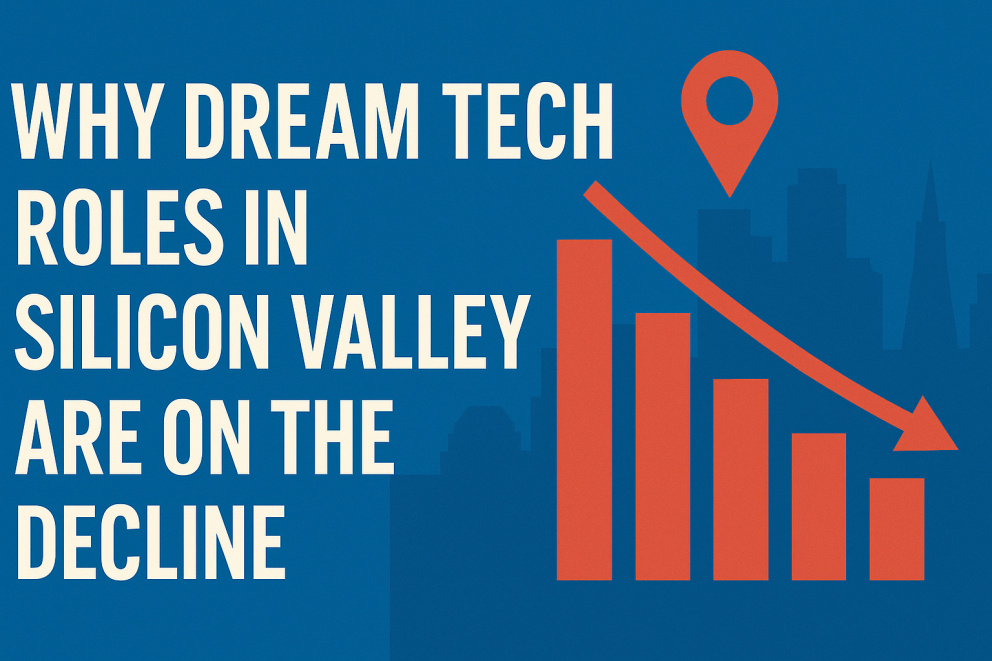Silicon Valley Dream Jobs Are Disappearing
For years, working at a major Silicon Valley tech company
was the ultimate career aspiration for engineers, product managers, and data
scientists worldwide. Jobs at Google, Apple, Meta, and Amazon promised high
salaries, generous stock options, lavish perks, and unparalleled prestige. But
today, the dream tech job is vanishing—victim of mass layoffs, hiring freezes,
automation, and a shifting economic landscape.
The
Golden Age of Tech Jobs Is Over
During the 2010s, Big Tech experienced explosive growth.
Companies hired aggressively, offering six-figure starting salaries, free
gourmet meals, on-site gyms, and flexible work policies. The promise of
changing the world through innovation—alongside lucrative compensation—made
these roles highly coveted.
But the tide has turned. Since 2022, the tech industry has
seen over 400,000 layoffs, with giants like Google, Microsoft, and
Amazon cutting thousands of roles. Even once-stable positions in AI, cloud
computing, and software engineering are no longer immune.
Why the
Dream Job Is Fading
- Cost-Cutting
and Efficiency
- After
years of overhiring during the pandemic, companies are now prioritizing
profitability over growth. Meta’s "Year of Efficiency" and
Google’s restructuring signal a shift toward leaner operations.
- Many
perks (free food, extravagant offices) are being scaled back as remote
work reduces office dependence.
- AI
and Automation
- AI
tools like GitHub Copilot and ChatGPT are reducing the need for junior
engineers and coders.
- Companies
are automating repetitive tasks, meaning fewer entry-level positions.
- Outsourcing
and Offshoring
- Tech
firms are increasingly hiring in lower-cost regions (India, Eastern
Europe, Latin America) instead of paying Silicon Valley salaries.
- Remote
work has made location less relevant, further pressuring U.S. wages.
- Declining
Startup Culture
- Venture
capital funding has dried up, leading to fewer disruptive startups. Many
engineers once dreamed of joining (or founding) the next unicorn—but
today’s market favors established players.
- Changing
Employee Expectations
- Workers
now prioritize work-life balance over "hustle culture." The
allure of 80-hour weeks at Tesla or Netflix has dimmed.
- Layoffs
have shattered the illusion of job security in Big Tech.
What’s
Next for Tech Workers?
The traditional Silicon Valley dream job may be
disappearing, but new opportunities are emerging:
- AI
and Machine Learning Roles – While automation threatens some
jobs, AI specialists remain in high demand.
- Cybersecurity
and Cloud Infrastructure – As tech becomes more complex, security
and scalability experts are critical.
- Non-Tech
Industries – Finance, healthcare, and manufacturing are hiring
tech talent to drive digital transformation.
- Freelancing
and Entrepreneurship – More professionals are opting for contract
work or launching their own ventures.
Conclusion
The era of unlimited growth, endless perks, and guaranteed
stability in Silicon Valley is over. The tech industry is maturing, and workers
must adapt—whether by upskilling, pivoting to new sectors, or embracing a more
flexible career path. The dream job isn’t gone forever, but it’s certainly
being redefined.
For aspiring tech professionals, the message is clear: The
future belongs to those who can evolve with the industry—not those chasing a
fading fantasy.









